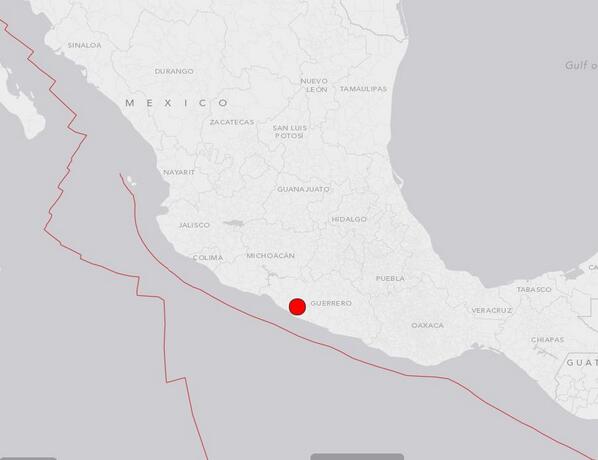By CHRISTOPHER SHERMAN and E. EDUARDO CASTILLO
Associated Press
EL PERICON, Mexico (AP) — A steady stream of neighbors, friends and classmates stepped into the half-light of Ezequiel Mora’s two-room adobe home Sunday to offer their condolences for the death of his son Alexander, the first of 43 missing college students to be confirmed dead.
In grey slacks, a navy blue shirt and leather sandals, Mora received his visitors with red, sleepless eyes, accepting their words with a slight nod and a lingering degree of disbelief.
Alexander Mora Venancio, 19, the second-youngest of eight siblings, had dreamed of becoming a physical education teacher, an ambitious goal for a kid from this tiny agricultural community deep in the mountains of the Costa Chica region of Guerrero state.
“They took my son’s dream,” the 63-year-old Mora said.
Attorney General Jesus Murillo Karam confirmed Sunday that the son had been identified from charred remains found several weeks ago near a garbage dump in Cocula, Guerrero. The DNA was matched from material extracted from a bone fragment and analyzed by forensics experts at a laboratory in Innsbruck, Austria.
“He was a classmate who was very strong, very persevering in whatever he had as a goal,” student leader Omar Garcia said of Mora. “It’s a big loss.”
The attorney general said 80 people have been arrested so far, including 44 police officers from the cities of Iguala and Cocula and former Iguala Mayor Jose Luis Abarca, who is under investigation for ordering the Sept. 26 attacks. The case also forced the governor of Guerrero to resign.
The identification confirmed what Murillo Karam told parents in November: that the students rounded up in a conflict with police had been killed and incinerated by the local drug gang, Guerreros Unidos. Horror, hope — and the lack of positively identified remains — led parents to discount the story, saying they would keep searching and expected to find their children alive.
In El Pericon, people say drug gangs ran the area until two years ago, killing, kidnapping and extorting at will. That changed when the people rose up and organized their own security forces, fed up with the ineffectual government police.
On Sunday, a young man with a rifle slung over his shoulder leaned against a pile of sandbags just behind Mora’s home. In a side yard, women from the town prepared pots of pozole, hominy soup, over open fires, while across the street boys practiced a folk dance to a steady drumbeat under a pavilion.
Mora said his son was not one to hang out in the streets. He devoted himself above all to soccer, and his yellow jersey lay at the center of an altar of candles and flowers in Mora’s home.
Coming from a municipality where, according to government figures, some 80 percent live in poverty, Alexander wanted to be a teacher to earn a living that could make life easier for his younger sister and his father. His mother died nearly five years ago.
The elder Mora was at the Rural Normal School in Ayotzinapa on Friday, when lawyers representing the families called him aside and took him into a room with representatives of a team of foreign forensic experts who have been working to identify remains.
“I don’t know if there were two bones, one bone,” Mora said. They told him they would return the identified remains in two weeks.
Mora plans to take a week to mourn his son at home with family and friends, but then he said he will rejoin the movement demanding justice for his son and the other 42.
“The government is not here for the people who fight,” he said. “They don’t want to hear us speak out.”
The case of the 43 missing has ignited indignation across Mexico and abroad over the fact that the students disappeared at the hands of a corrupt local government and that federal authorities took 10 days to intervene.
Tens of thousands have taken to the streets, some calling for President Enrique Pena Nieto to resign. The case has come to signify an engrained abuse of authority and corruption.
Marching to the protest site Saturday, people filled streets in central Mexico City shouting, “Justice,” “We want them alive,” and “Pena out.”
The two months of waiting have been brutal for the family. It’s too soon to say it’s a relief to at least know where Alexander is, said his older brother, Omar Mora, 33.
He asked why only Alexander could be identified, and how could they have reduced all those bodies to ash?
But he plans to continue supporting the other families.
“It’s not human to hurt the families like this, with one story after another,” he said. “Sometimes you don’t know what to do, how to react.”
———-
Associated Press writer Maria Verza contributed to this report.
Copyright 2014 The Associated Press. All rights reserved. This material may not be published, broadcast, rewritten or redistributed.

